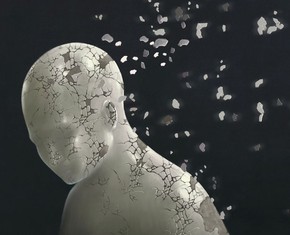The views expressed in our content reflect individual perspectives and do not represent the authoritative views of the Baha'i Faith.
Much has been written about the relationship between religion and science. Some proclaim them mortal enemies, some, two sides of the same coin. Certainly, both science and religion are human, social activities. Neither can claim to be better than their ultimate influence on society.
Both science and religion can be and have been abused, and this begs a question: Does this ability to be abused reflect on the object of abuse, or the moral atrophy of the abusers?
Just as religion has been used for prejudicial, ungodly and irrational ends, so science has been used for prejudicial, unscientific, and irrational ends. Historically, science has been a tool to obtain desired (but not necessarily beneficial or even rational) social ends such as segregating racial groups, denying civil liberties of all kinds based on ethnicity or gender, even the experimenting on or sterilization of people deemed “defective” by some supposedly scientific and objective standard.
That religion has been used to destroy opposing viewpoints, subjugate or castigate nonbelievers, oppress minority groups and promote irrational world views has been deemed sufficient reason by some to simply do away with it.
Likewise, the fact that science has been used to “destroy nations, render the earth uninhabitable, effect mass murder, disgorge a cornucopia of often useless gadgets, and even to bolster dogmatic and puerile political-social or philosophical points of view about life” (William S. Hatcher, The Science of Religion p. 8) has caused some to distrust it or dismiss it. I’d wager, though, that most reasonable people—whether they were “religious” or not—would balk at advocating the abolition of science as a discipline.
The supposed conflict between science and religion, I think, requires that we view both as orthodoxies with inflexible, antagonistic and non-adaptive world views. I think it also requires that we view the purpose of each of these orthodoxies to be in direct conflict.
The Baha’i viewpoint—as elucidated in a variety of discourses by Baha’u’llah and his eldest son, Abdu’l-Baha—maintains that these two ways of knowing do not conflict, but rather complement each other. Baha’is assume that when the true purpose and nature of both science and religion are understood, there is no conflict.
A secular humanist friend of mine, when asked how—as an advocate of a purely scientific world view—he could reconcile the scientific promotion of immoral positions in the areas of social Darwinism, eugenics, human experimentation and race prejudice, responded with the Scalpel Analogy: Science, he said, is like a scalpel. The scalpel’s purpose—inarguably—is to save lives. In the hands of a skilled surgeon it fulfills that purpose. In the hands of an ignorant or unskilled user, it can become the source of accidental harm. In the hands of a criminal, it becomes an instrument of murder.
I found this very like Abdu’l-Baha’s remarks on religion in his discourse in The Secret of Divine Civilization:
…the principles of the Divine religions can hardly be evaluated by the acts of those who only claim to follow them. For every excellent thing can still be diverted to the wrong ends. A lighted lamp in the hands of an ignorant child or of the blind will not dispel the surrounding darkness nor light up the house—it will set both the bearer and the house on fire. – p. 72.
What interested me about my friend’s remarks were that they came after he had argued that religion, itself, was bad and I had shared with him Abdu’l-Baha’s comment. It was only when he felt science was under attack that he offered the same basic analogy—and yes, he did recognize the irony of this, after the fact.
As it happened, I was not attacking science or the scientific method. As a Baha’i, I see science as the primary tool for the exploration of the physical universe. Abdu’l-Baha refers to it as “the highest attainment upon the human plane” because it has the capacity to discover realities. This capacity of science lies in its method of inquiry.
Baha’is accept this and accept whatever redefinitions of the terms “religion” and “faith” arise from it.
I can’t overemphasize this: into this sometime contentious dialogue about the nature of reality and science and faith, steps a religion that teaches as an article of faith that science and religion agree:
How can man believe that which he knows to be opposed to reason? Is this possible? Can the heart accept that which reason denies? Reason is the first faculty of man, and the religion of God is in harmony with it. – Abdu’l-Baha, The Promulgation of Universal Peace, p. 231.
So, back to that question about investigating reality. Human reality is complex. We are not only complex physical beings, but complex intellectual and emotional beings, as well. Our reality has both physical/material and intellectual/spiritual aspects. This suggests to many of us that our means of investigating reality must be as multifaceted as that reality itself—as all-embracing as what Abdu’l-Baha calls our “first faculty.”
In the same passage where he praises science as “the highest attainment upon the human plane,” Abdu’l-Baha goes on to relate that two forms of science exist: material science and divine or spiritual science. He encourages us all to learn both of those sciences:
Material science is the investigation of natural phenomena; divine science is the discovery and realization of spiritual verities. The world of humanity must acquire both. – Ibid., p. 138.
Next: What is Science, and Why Do We Trust It?
You May Also Like
Comments

















Your friend sounds like exactly the sort of person I hope to reach with these articles. I hope he can be persuaded to read them and if you like, I can share my contact information if he has questions. Also, I blog with a couple of Baha'i friends at CommonGroundGroup.net on the subject of science and religion. Our main blogger is a Baha'i physicist who was raised an atheist. His blogs delve deeply into the subjects that I often write on.